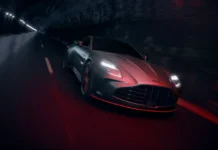
A new NHTSA probe focuses on more than 130,000 Mustang Mach-E vehicles.
This week, a new preliminary investigation by the National Highway Traffic Safety Administration is underway to determine whether Ford Motor Company should launch a recall to address two fatal accidents where the system was engaged. The probe specifically homes in on 2021-2024 Ford Mustang Mach-E vehicles equipped with Co-Pilot360 Active 2.0, which includes the company’s semi-autonomous driver assistance system, though BlueCruise is available on a growing range of Ford and Lincoln vehicles at the moment.
Both incidents in question occurred in nighttime conditions.
The agency’s initial resume opening the investigation states that it will “evaluate the [BlueCruise] system’s performance of the dynamic driving task and driver monitoring.” It also notes that drivers can only engage Ford’s system on certain roads and uses a camera system to determine whether the person behind the wheel is paying attention to the road. Ideally, the system is meant to work on high-speed, limited access highways, and does not engage in typical urban driving or if the system detects the driver isn’t looking forward.

This probe by the ODI focuses on an estimated 130,050 Mustang Mach-E models, though it’s reasonable to interpret any escalation of this probe to a full-blown recall would impact other models like the Ford F-150 Lightning and the Lincoln Navigator.
The Insurance Institute for Highway Safety (IIHS) also took aim not just at Ford’s BlueCruise, but similar Level 2 systems as well. Evaluators rated BlueCruise “Poor” — the worst level in its safety scoring system — alongside 10 other systems including Tesla’s Autopilot and Full Self-Driving, Mercedes’ Distronic system (its upcoming Drive Pilot setup has not been tested yet) and Volvo’s Pilot Assist. Nissan’s ProPilot Assist 2.0 system and GM’s Super Cruise managed “Marginal” ratings, while Lexus’ Teammate was the only system out of 14 the IIHS tested to earn an “Acceptable” rating. However, even that is not an accolade in itself, as the IIHS says the whole industry has work to do, but it also expects rapid advancements in the coming years.
Even taking into account the tragic fatalities that led to the investigation, Ford is hardly alone in facing scrutiny from federal regulators. Tesla is also under the microscope, as the agency announced last week it was opening a probe into some 2 million vehicles to improve the safety of its Autopilot system. Several accidents have been reported over the years, including some that occurred after Tesla vehicles received a recent over-the-air update after a voluntary recall.
While we are still talking about the preliminary stages of this investigation, the Ford Mustang Mach-E is not yet under recall. However, owners should pay close attention to the outcome of this probe, and keep in mind that these Level 2 semi-autonomous systems are not designed to completely remove the driver from the equation. These systems work on the basis that the driver should be paying attention and ready/able to take over at any given moment, and that’s especially true in challenging driving conditions.

























